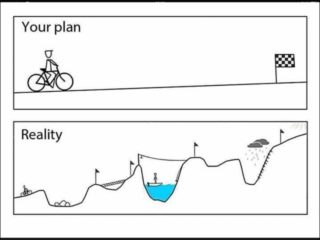Sigh. It’s been a scary week. In fact, it’s just a scary time. Unspeakable violence, natural disasters, discourse and pain and suffering … it’s a lot. A whole lot.
 These events have caused me to struggle with feelings of fear and unease, and I have struggled to quell the fear and unease in my children. And although I am not an expert by any stretch of the imagination, I have looked to others for guidance about how to cope with these feelings, and I thought sharing what I’ve learned might help someone else, as well.
These events have caused me to struggle with feelings of fear and unease, and I have struggled to quell the fear and unease in my children. And although I am not an expert by any stretch of the imagination, I have looked to others for guidance about how to cope with these feelings, and I thought sharing what I’ve learned might help someone else, as well.
Some Coping Tips:
Acknowledge the Fear. Running from fear is not going to help anyone or anything. Slow down, and let yourself really feel what you’re feeling. It may be intense for a bit, but you will come out the other side and that journey shouldn’t be suppressed.
Offer Help. Tragedies make us feel powerless. Take some of that power back by actively helping those who are affected in any way you are able.
Focus on Your Reality. Yes, what is happening is disturbing. But what is your reality? Don’t overgeneralize threats and allow what is happening elsewhere to affect your day to day movement.
Balance the Negative With the Positive. Tragedies find their way into the news cycle far more often than their more positive counterparts, but there are wonderful things happening everywhere. Seek these stories out. Humanity is a beautiful thing.
Get Help If You Need It. If fear is consuming you, don’t suffer unnecessarily. Reach out for help.
Human life is a precious thing. Hold your loved ones close, friends. This too shall pass.

 Of course, he is right. Transition, whether big or small, presents a tremendous opportunity to make things better. Make you better. But it must be approached thoughtfully and respectfully; because that’s when the magic happens.
Of course, he is right. Transition, whether big or small, presents a tremendous opportunity to make things better. Make you better. But it must be approached thoughtfully and respectfully; because that’s when the magic happens. Although it may seem counter-intuitive, one of the main components of your crisis management plan should be proactive, positive outreach NOW –
Although it may seem counter-intuitive, one of the main components of your crisis management plan should be proactive, positive outreach NOW –